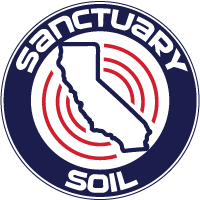At Sanctuary Soil, we recognize the need to encourage sustainable living practices in our community and beyond. Sustainability is beginning to be recognized as a value and way of life that is imperative for a better future. If you are serious about making a difference, you can pursue a B.S. in Sustainable Living at the Maharashi University of Management in Fairfield, Iowa. What an amazing opportunity to live and learn in a community centered on creating a better way of life and a better future.
As stated on the university web site:
Sustainable Living Degree Program Overview
MUM established the first four-year Sustainable Living degree program in 2003, and is a leader in the field. This new academic discipline is now being pioneered at MUM and an increasing number of other institutions around the world. Because it is so new as a discipline there are no broadly accepted guidelines on what constitutes an education in Sustainable Living. In contrast, more traditional disciplines like engineering, business, biology, philosophy, anthropology, etc. have curriculum standards and specialties that are widely accepted by institutions offering these programs.
B.S. in Sustainable Living
This 4 year degree prepares students for careers in sustainable community development and environmental coordination, or further study and research. Students interested in receiving a B.S. in Sustainable living must complete at least 56 credits worth of courses from our program.
Minor in Sustainable Living
An SL minor provides students with a practical foundation for understanding the principles and practices of environmental design for communities. Any student can receive a minor in Sustainable Living by completing at least 20 credits worth of courses from our program.
We are passionate about dirt and are particularly excited to see that one the “Tracks of Focus” offered at MUM centers on the concept of a living soil.
Applied Soil Ecology
The conventional agriculture that we’re so familiar with produces high yields, but at the cost of an unsustainable impact on human health, the environment, the economy, and the social fabric. Surprisingly, even organic agriculture is usually not fully sustainable. Enter the concept of the living soil, as developed by Dr. Elaine Ingham, one of the world’s leading soil biology experts. Basically, it holds that with the proper balance of soil bacteria, protozoa, fungi, nematodes, and microarthropods, any soil in the world can provide all the nutrition required for a healthy crop. This track teaches students how to prepare the compost and compost tea required to restore that nutrition to soils, first through hands-on class work and then fieldwork on a practicing farm.



